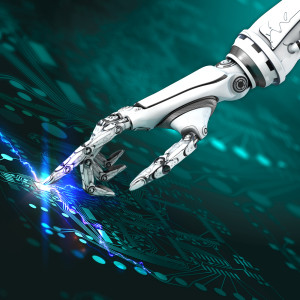
Tech Workers Split on Promise, Pitfalls of AI

(Willyam Bradberry/Shutterstock.com)
Another industry survey, this one a canvass of software developers, reinforces growing fears about the rise of artificial intelligence and machine learning and their implications for the technology workforce.
In findings released this week, IT industry market researcher Evans Data Corp. said being displaced by AI was the top concern of more than 550 software developers. Asked to identify career concerns, Evans Data reported that 29.1 percent of respondents cited “I and my development efforts are replaced by artificial intelligence.”
The market researcher noted that concerns about being replaced by AI-based automation tools outweighed other concerns such as targeted platforms becoming obsolete (23 percent) or the failure of new platforms being targeted by software development teams (14 percent).
The Evans Data findings reinforce concerns identified in earlier industry surveys. In January, for example, Accenture Strategy released a report that found a “trust gap within the managerial ranks” as companies begin to deploy cognitive computing on the form of intelligent machines.
The machine intelligence debate focuses on how best to leverage the technology in enterprises in order to free up managers’ time to focus on strategic initiatives. While 46 percent of high-level managers told Accenture they would trust advice provided by intelligent systems, only 24 percent of mid-level managers expressed strong support for the technology. Perhaps fearful of being replaced by a machine, only 14 percent of front-line managers surveyed showed enthusiasm for working with intelligent machines.
The study’s author’s acknowledged that the rise of machine intelligence in the workplace will take some getting used to, meaning for now there is “no clear path to realizing the opportunity [that extends from] automation to augmentation.”
Meanwhile, the Evans Data report found that fears of obsolescence as AI technologies are deployed was more threatening to software developers than factors such as a lack of retirement savings, being stifled at work by poor management or worries about seeing their skills or development tools become irrelevant.
Evans Data said growing concerns about the impact of AI on the workforce extended across industries and platforms. It also noted a “strong correlation” among AI skeptics who “were more likely to self-identify with being loners rather than team players.”
“Another dimension to this finding is that over three-quarters of the developers thought that robots and artificial intelligence would be a great benefit to mankind, but a little over 60 percent thought it could be a disaster,” Janel Garvin, CEO of Evans Data, noted in a statement releasing the survey results.
“Overlap between two groups was clear, which shows the ambivalence that developers feel about the dawn of intelligent machines. There will be wonderful benefits, but there will also be some cataclysmic changes culturally and economically.”
Finding the proper mix of human ingenuity and machine intelligence appears to be among the keys to success for technologists working in areas like big data and other IT sectors that are beginning to incorporate AI and machine intelligence technologies.
A recent post on an HPC industry forum regarding advances in automating datacenter operations was typical: “Us old style guys are going to have our lunch money stolen by young upstarts.” Added the commenter: “These guys know how to keep things running at scale and how to tolerate failures.”
Recent items:
Survey: Middle Managers Wary of Machine Intelligence































